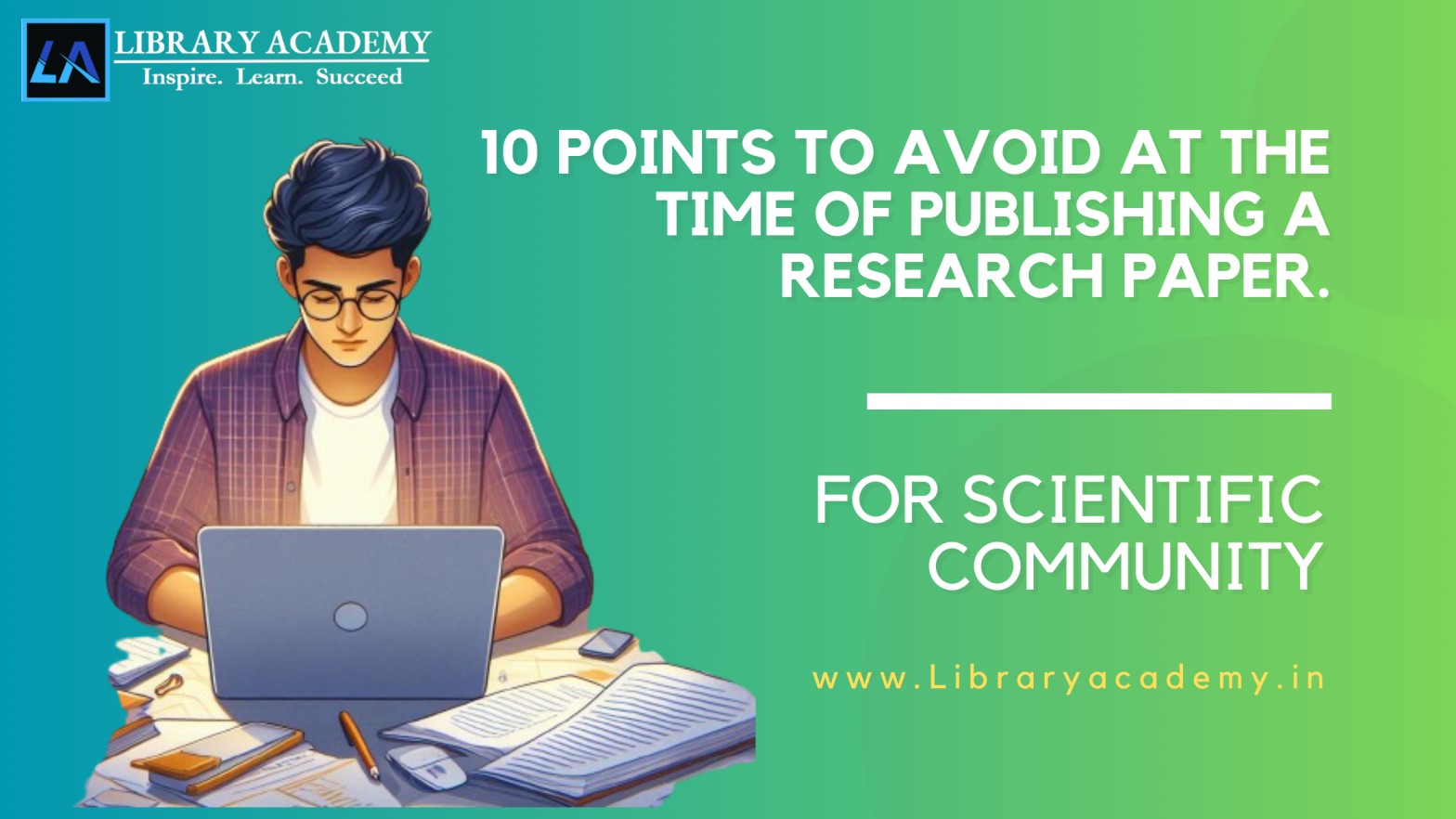When publishing a research paper, it’s important to be mindful of potential pitfalls that can hinder its quality or reception within the scientific community. Here are ten points to avoid when publishing a research paper:
01. Lack of originality: Ensure that your research offers a unique contribution to the field and is not duplicate previous work. Conduct a comprehensive literature review to identify existing knowledge gaps and build upon them.
02. Poor research design: Develop a robust research design with appropriate methodologies, sample sizes, controls, and statistical analyses. Inadequate research design can weaken the validity and reliability of your findings.
03. Inadequate data analysis: Use appropriate statistical methods and analytical techniques to analyze your data accurately. Improper or flawed data analysis can undermine the credibility of your research.
04. Insufficient sample size: Ensure that your study’s sample size is adequate to provide statistically significant results. Small sample sizes may lead to inconclusive findings or limit the generalizability of your research.
05. Incomplete or inconsistent reporting: Provide a thorough and consistent description of your research methodology, results, and conclusions. Incomplete or ambiguous reporting can confuse readers and make it difficult to replicate or validate your findings.
06. Lack of clarity and organization: Clearly structure your research paper, including sections such as introduction, methods, results, discussion, and conclusion. Poor organization and lack of clarity can make it challenging for readers to follow your arguments and understand your research.
07. Poor writing style and grammar: Write your research paper using clear, concise, and grammatically correct language. Poor writing style and grammar can distract readers and negatively impact the perceived quality of your work.
08. Failure to address limitations: Acknowledge and address the limitations of your research. Failing to discuss limitations can create doubts about the validity and generalizability of your findings.
09. Inadequate referencing: Cite and reference all relevant sources accurately. Neglecting to provide proper citations can lead to accusations of plagiarism and undermine your academic integrity.
10. Rushing through the peer-review process: Take the time to carefully respond to reviewer comments and revise your paper accordingly. Rushing through the revisions may result in overlooking important feedback and diminish the overall quality of your research.
By avoiding these pitfalls, you can enhance the quality, impact, and credibility of your research paper during the publication process.

